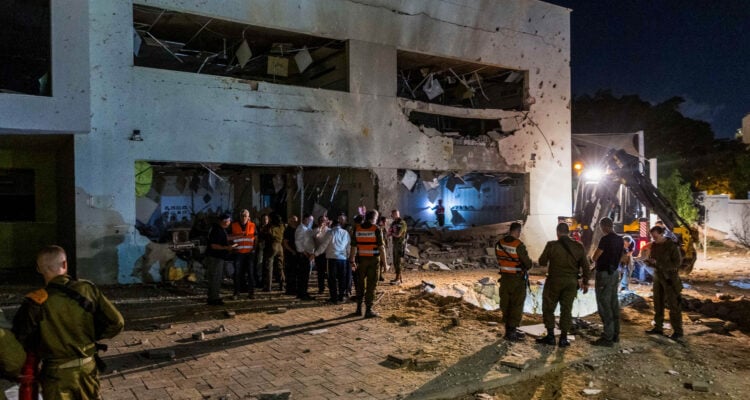Israel could target Iranian nuclear, oil assets; assassinating senior leaders also an option, according to reports.
By World Israel News Staff
Following last week’s unprecedented direct attack by Iran, Israeli security officials are weighing possible options for a retaliatory strike against the Islamic Republic.
Tehran launched some 200 ballistic missiles at military and intelligence bases in Israel, with some 25 of those projectiles failing to be intercepted by the Iron Dome air defense system.
The Israeli military recently admitted that Iranian missiles struck several air forces bases, though the IDF spokesman stressed that the impacts had not affected operations, nor had aircraft sustained damage.
Immediately following the attack, Prime Minister Benjamin Netanyahu said in a televised speech that Iran had “made a big mistake” by attacking, and that Tehran “would pay” for sending some 9 million Israelis into bomb shelters.
In a subsequent speech, Netanyahu hinted that Israel may assassinate top Iranian leaders, such as Supreme Leader Ayatollah Ali Khameinei, as part of its retaliatory attack.
“When Iran is finally free — and that moment will come a lot sooner than people think – everything will be different,” Netanyahu said.
The headquarters of Iran’s Revolutionary Guard Corps or its presidential palace are also potential symbolic targets that could serve as a blow to the morale of the regime.
Beyond killing Iranian government officials, there are a number of different targets that Israel could choose to restore its deterrence against Iran.
According to a Ma’ariv report, the Israeli military is considering striking Iranian military assets, such as the sites from which the ballistic missiles were launched.
An attack targeting Iran’s oil production facilities and fields could also levy a defeating economic blow against Tehran.
Israel could also leverage the momentum of the current moment to finally strike Iran’s nuclear development sites. The Jewish State has been seeking international legitimacy for such a move for years.
Washington has sent mixed messages regarding its support for an Israeli retaliatory strike on Iran.
President Joe Biden recently said that Israel should avoid hitting Iran’s oil or nuclear sites. He then urged Jerusalem to respond “proportionately” to what is believed to be one of the largest ballistic missile attacks in history.
Other White House officials have signaled that the U.S. would help Israel exact “severe consequences” against Iran for the attack.




